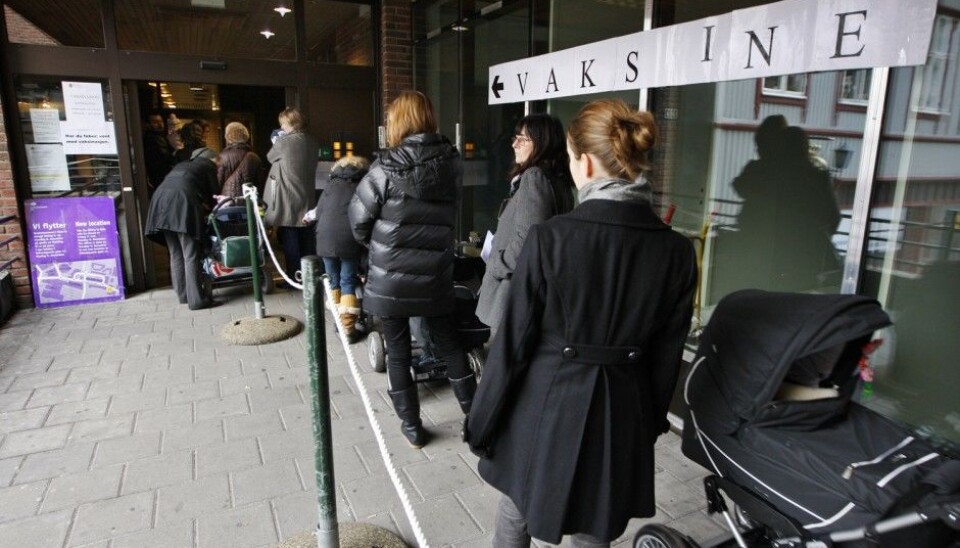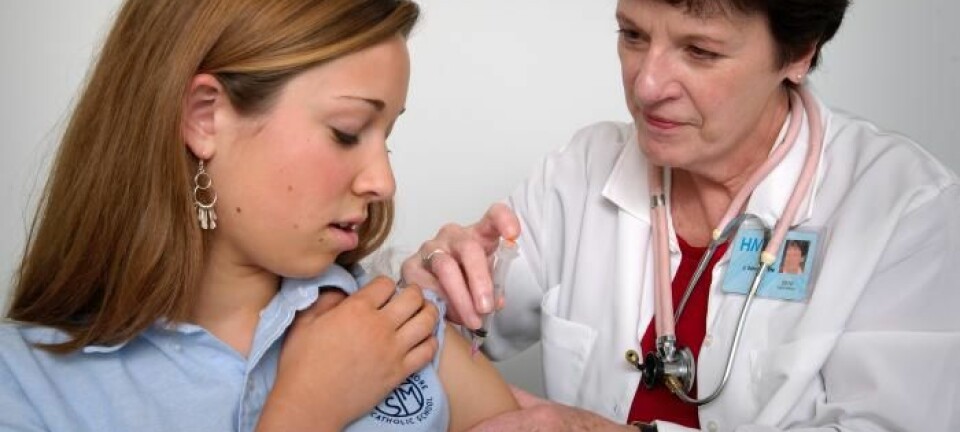
People with children vaccinate themselves to protect their loved ones
Childless, single persons may take vaccines because they deem it important to protect vulnerable segments of society. Parents seem to be more concerned about protecting their own family.
The success of vaccinations is dependent on getting sufficient numbers in a population to develop immunity, thus reducing the numbers that could infect others.
How can health officials convince people of the necessity of vaccinating themselves out of altruistic motives, in other words, for the general benefit of others. One angle is to tailor arguments to fit the mind-sets of various groups, according to recent Swedish research.
Rafael Ahlskog asked Swedes to answer whether they would consider vaccinating themselves against a potentially dangerous virus following requests from health authorities. The projected scenario is similar to the one experienced during the (H1N1) swine flu pandemic in 2009. The experiment was part of Ahlskog’s PhD work at Uppsala University.
Appealing to a person’s altruism proved sufficient for those who were neither married or in a partnership with children. They would be willing to vaccinate themselves to help strangers.
This motivation had less impact on parents who lived with their partner. These are more willing to vaccinate themselves if reminded that the disease is a potential threat to their own family.
A new, perilous virus
Both the childless and single Swedes and the ones who were cohabiting parents were willing to take vaccines. But these two groups tended to be swayed by different arguments.
The participants consisted of about 2,600 Swedes from a panel that regularly responds to web-based surveys. They were not selected randomly and their answers cannot be claimed to be representative of Swedes in general. Moreover, on the whole the persons surveyed are also older than the average Swede and men are over-represented. Nor does the study include all types of families. Single parents were weeded out, as were partners who did not live together under the same roof.
In the projected scenario of the survey, a new virus has flared up. For most people, it is no worse than a common cold. But for vulnerable groups it represents a serious disease, even sometimes deadly.
The participants were told that in this hypothetical viral epidemic they were not at risk personally. Some of them were requested to vaccinate themselves out of concerns for their families, colleagues or vulnerable segments of the population. Others were simply asked to take vaccines without any motivational arguments.
They were then queried about how likely – on a scale of one to five – it would be for them to take a vaccine in such a situation, and whether they would do so on behalf of family, friends and colleagues or for the benefit of general society.
General altruism loses ground
The arguments worked differently on the two groups. Compared to those who do not know who they might be saving, parents who live with a partner or spouse were more likely to vaccinate themselves if they heard the virus can harm their family or colleagues.
Persons without children who do not live with a partner scored higher when they were presented with and argument related to protecting vulnerable segments of society. The two groups do not differ all that much as regards the probability of taking the hypothetical vaccine, with averages between three and four on the scale.
“Before a person has a partner and children it seems that a broader form of care for society plays a larger role in the decision to get vaccinated. Such considerations disappear and are overtaken by a narrower focus when a family and children enter the picture,” said Rafael Ahlskog in a press release.
Tailoring vaccination campaigns
Ahlskog thinks such considerations can be useful when authorities are starting up vaccination campaigns. Nevertheless, he stresses that the experiment is not definitive regarding how people can be expected to behave in a real situation. Nor has he followed persons over a period of time to see whether they change their attitudes after having children. There can be other reasons why the two groups in the study are motivated differently.
Other studies have also shown that the message needs to be tailored to disparate groups. Some opponents of vaccinations can change their minds if given more information. Others who are reluctant to take vaccines might simply accept the idea if they see that a vaccination is neither expensive nor hard to get.
-------------------------------------
Read the Norwegian version of this article at forskning.no
Translated by: Glenn Ostling








